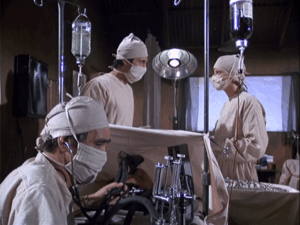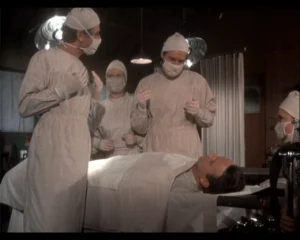The television series MASH, set during the Korean War, is more than just a comedy; it serves as a poignant exploration of the lives of medical personnel in combat situations. Through its unique blend of humor and drama, the show captures the essence of what it means to be a soldier, a medic, and a human being in the face of adversity. Here are ten ways in which MASH reflects the realities faced by medical staff in war zones, illustrating the complex emotions and moral dilemmas they encounter daily.
-
The Weight of Responsibility: Medical personnel in MAS*H are often depicted carrying the immense burden of life-and-death decisions. The show portrays how these professionals must balance their duty to save lives with the harsh realities of limited resources and overwhelming patient loads, highlighting the emotional toll this responsibility takes on them.
-
Coping Mechanisms: The characters frequently use humor as a coping mechanism to deal with the stress and trauma of war. This reflects a real-world strategy employed by many medical professionals who face traumatic experiences, showing how laughter can be a vital tool for maintaining mental health in high-pressure environments.

3. Brotherhood and Camaraderie: MAS*H showcases the deep bonds formed between medical staff, emphasizing the importance of teamwork and support in stressful situations. These relationships are crucial for coping with the challenges of their work, mirroring the reality of how medical teams rely on one another for emotional and professional support.
4. Moral Dilemmas: The series often presents characters facing ethical dilemmas, such as prioritizing patients or making decisions that could lead to loss of life. This reflects the real-life challenges medical personnel encounter, forcing them to confront their values and the harsh realities of war.
5. The Impact of War on Mental Health: MAS*H does not shy away from depicting the psychological effects of war, such as PTSD, on both soldiers and medical staff. By addressing these issues, the show raises awareness about the mental health struggles faced by those in combat, an aspect often overlooked in discussions about war.

6. Humanizing Patients: Through its storytelling, MAS*H humanizes the soldiers who become patients, reminding viewers that behind every injury is a person with a story and dreams. This perspective encourages empathy and understanding, essential qualities for medical personnel working in combat zones.
7. The Chaos of Combat: The show realistically portrays the chaotic and unpredictable nature of war, illustrating how medical staff must adapt quickly to ever-changing situations. This reflects the reality of medical emergencies in war, where flexibility and quick thinking are essential for survival.
8. The Role of Gender: MAS*H addresses gender roles in the military, showcasing strong female characters who challenge stereotypes and contribute significantly to the medical team. This representation highlights the evolving role of women in the armed forces and the importance of inclusivity in the medical field.
9. Sacrifice and Loss: The series does not shy away from the theme of sacrifice, illustrating how medical personnel often face the loss of patients they have fought to save. This stark reality is a significant aspect of their profession, emphasizing the emotional toll of working in war.
10. Hope and Humanity: Despite its serious themes, MAS*H ultimately conveys a message of hope and the resilience of the human spirit. The characters often find moments of joy and connection, reminding viewers that even in the darkest times, there is light to be found in human relationships and kindness.
In summary, MAS*H serves as a powerful reflection of the realities faced by medical personnel in wartime. Through its blend of humor, drama, and poignant storytelling, the series captures the complexities of their experiences, making it a timeless exploration of humanity amid conflict.